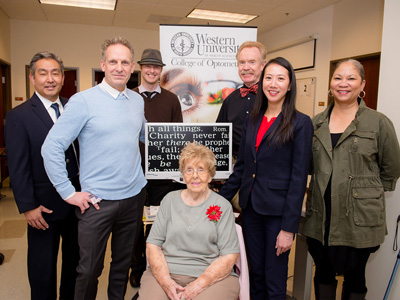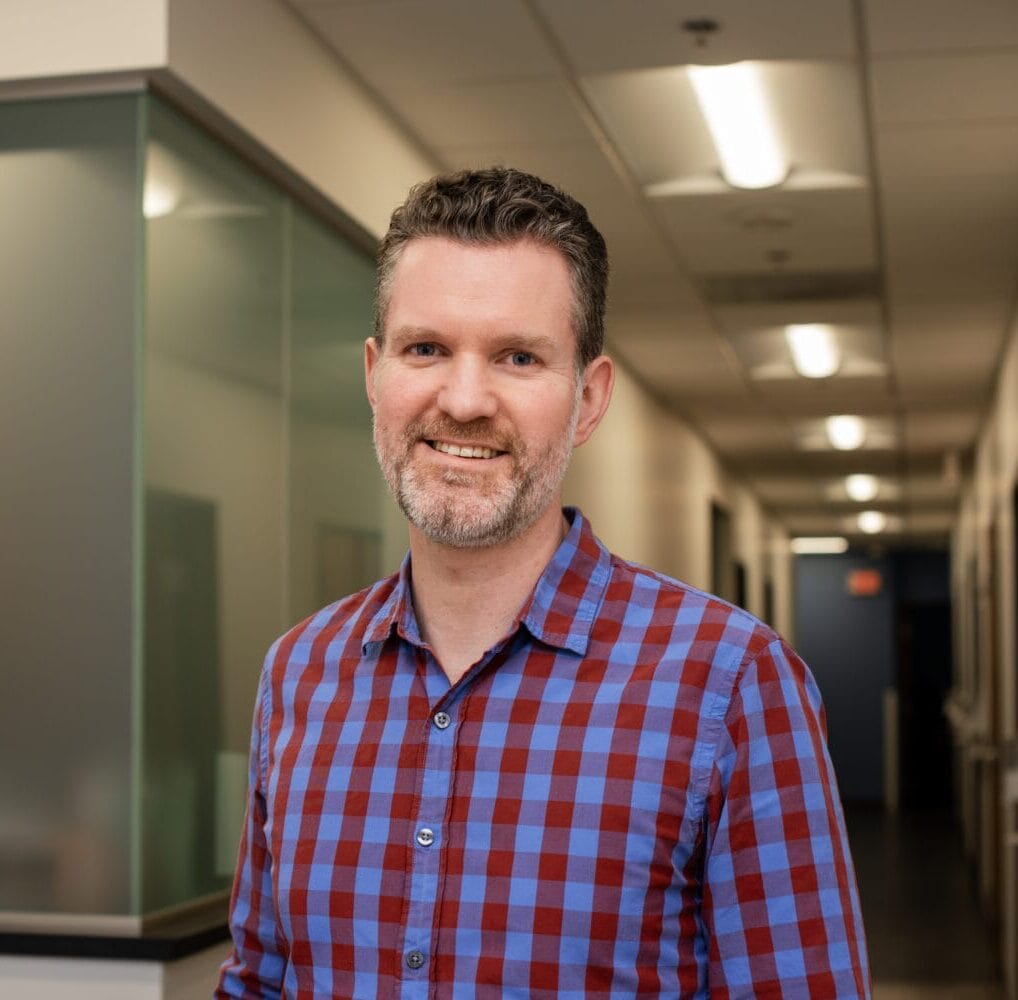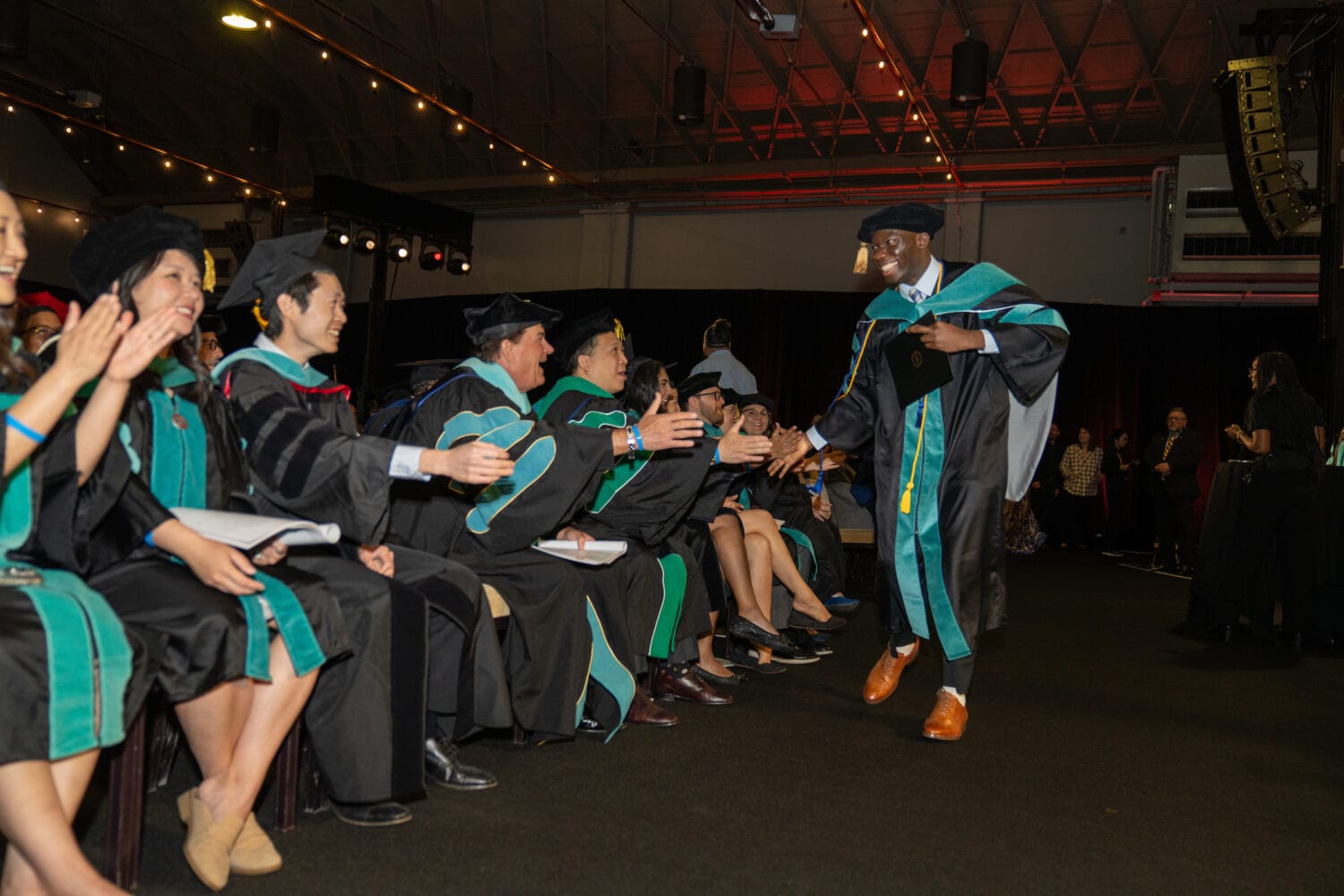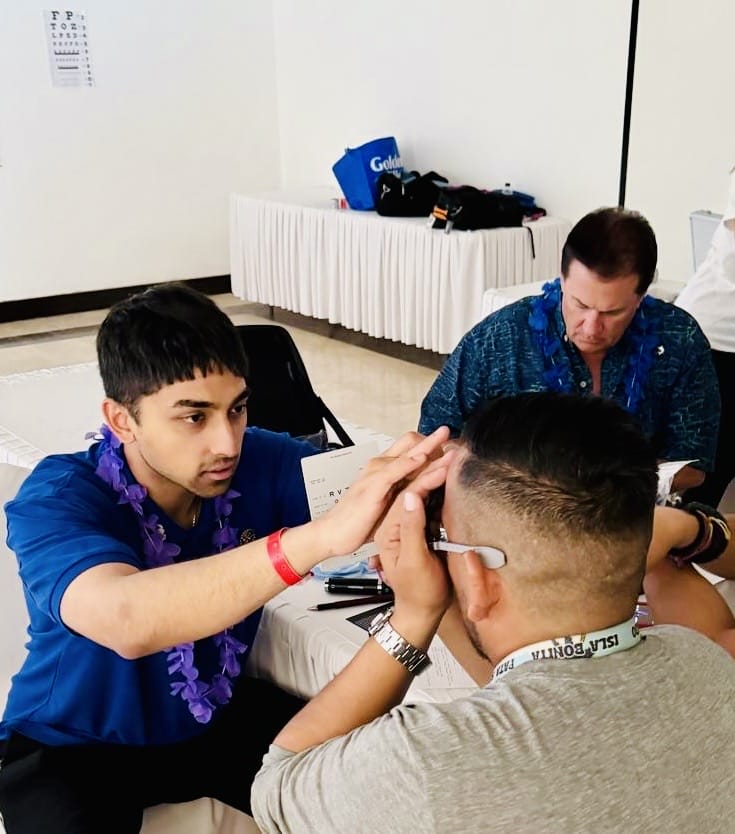WesternU Eye Care Institute patient receives life-changing donation

Click to play slideshow
Ontario resident Thelma Lindenbauer has a lot of catching up to do.
Lindenbauer, 92, was diagnosed four years ago with age-related macular degeneration (AMD), which is the leading cause of vision loss among people age 50 and older, according to the National Eye Institute. It causes damage to the macula, a small spot near the center of the retina and the part of the eye needed for sharp, central vision, which lets us see objects that are straight ahead.
Western University of Health Sciences’ Eye Care Institute (ECI) is helping Lindenbauer regain some of the independence she lost as her AMD progressed. An anonymous donor provided ECI with a Merlin desktop electronic video magnifier. The company that developed Merlin, Enhanced Vision, refurbished the unit to working condition, allowing WesternU to give it to Lindenbauer.
The magnifier is a desktop CCTV that projects an image of items placed on its table platform onto a 23-inch monitor. A person with impaired vision can magnify and enhance contrast of the images for easier reading and performing various near activities.
“I’m just thrilled to death to get this,” Lindenbauer said. “I never thought I could afford this. I’ll make the best use of it.”
Lindenbauer has a caregiver that helps her four times a week.
“This will take a lot of work off my caregiver too,” she said. “I’m going to catch up on everything I missed out on.”
Lindenbauer was eager to read again and regain independence, said College of Optometry Chief of Vision Rehabilitation Service Linda Pang, OD, FAAO. She didn’t respond well to optical magnification devices, and electronic video magnification allows her to participate in activities she had previously given up. During her vision rehabilitation evaluation, ECI staff also found that she also needed physical therapy and low-vision occupational therapy to address safety, balance, ambulation, and performing activities of daily living.
“This case highlights interdisciplinary care, working in teams to optimize the patient’s performance,” Pang said. “In vision rehabilitation, our goal is to optimize people’s remaining vision to keep them safe, healthy, and as active as they choose to be. The approach that makes WesternU’s College of Optometry unique is our understanding that vision loss impacts daily life and health outcomes, therefore we shift our mindset to focus beyond the eyes and care for the person.”
Lindenbauer said she didn’t know what to expect when she was diagnosed with AMD.
“I just knew it would get bad. I didn’t know how far,” she said. “Now, it’s gotten so bad I really need more help than I could afford.”
She is grateful for the WesternU team that helped her, and everyone who contributed to this donation.
“They just don’t know how much this means to me. All the people here have been really nice to me,” Lindenbauer said. “I want to thank everyone who helped me. Thank you, thank you, thank you.”



